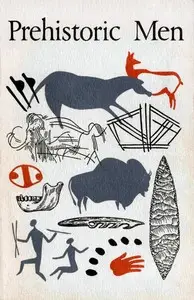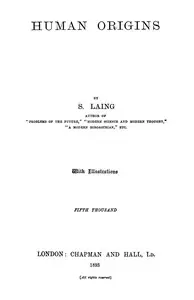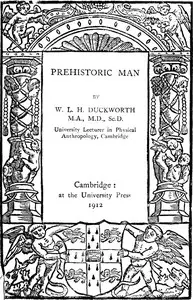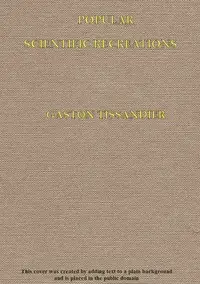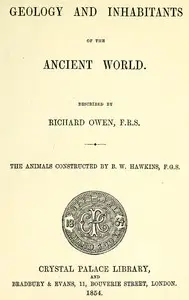"The Antiquity of Man" by Charles Lyell is a groundbreaking science book that looks at how old humans really are by studying rocks and fossils. Lyell uses clues from the earth, like tools and bones found with animals that no longer exist, to show that people have been around much longer than previously thought. Setting the scene, the author talks about exciting new discoveries from caves and other places in Europe, hinting that humans lived alongside mammoths and other extinct beasts. Lyell organizes his arguments around geological time periods, carefully explaining the evidence he finds in different places. He wants to show that human history is deeply connected to the history of the planet, challenging old ideas with new scientific proof.
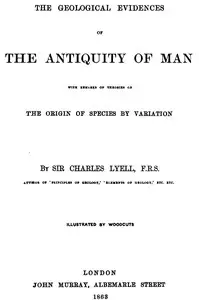
The Antiquity of Man
By Charles Lyell
Fossils, tools, and extinct creatures reveal a startling truth: humans have walked the Earth far longer than anyone imagined.
Summary
About the AuthorSir Charles Lyell, 1st Baronet, was a Scottish geologist who demonstrated the power of known natural causes in explaining the earth's history. He is best known today for his association with Charles Darwin and as the author of Principles of Geology (1830–33), which presented to a wide public audience the idea that the earth was shaped by the same natural processes still in operation today, operating at similar intensities. The philosopher William Whewell dubbed this gradualistic view "uniformitarianism" and contrasted it with catastrophism, which had been championed by Georges Cuvier and was better accepted in Europe. The combination of evidence and eloquence in Principles convinced a wide range of readers of the significance of "deep time" for understanding the earth and environment.
Sir Charles Lyell, 1st Baronet, was a Scottish geologist who demonstrated the power of known natural causes in explaining the earth's history. He is best known today for his association with Charles Darwin and as the author of Principles of Geology (1830–33), which presented to a wide public audience the idea that the earth was shaped by the same natural processes still in operation today, operating at similar intensities. The philosopher William Whewell dubbed this gradualistic view "uniformitarianism" and contrasted it with catastrophism, which had been championed by Georges Cuvier and was better accepted in Europe. The combination of evidence and eloquence in Principles convinced a wide range of readers of the significance of "deep time" for understanding the earth and environment.

